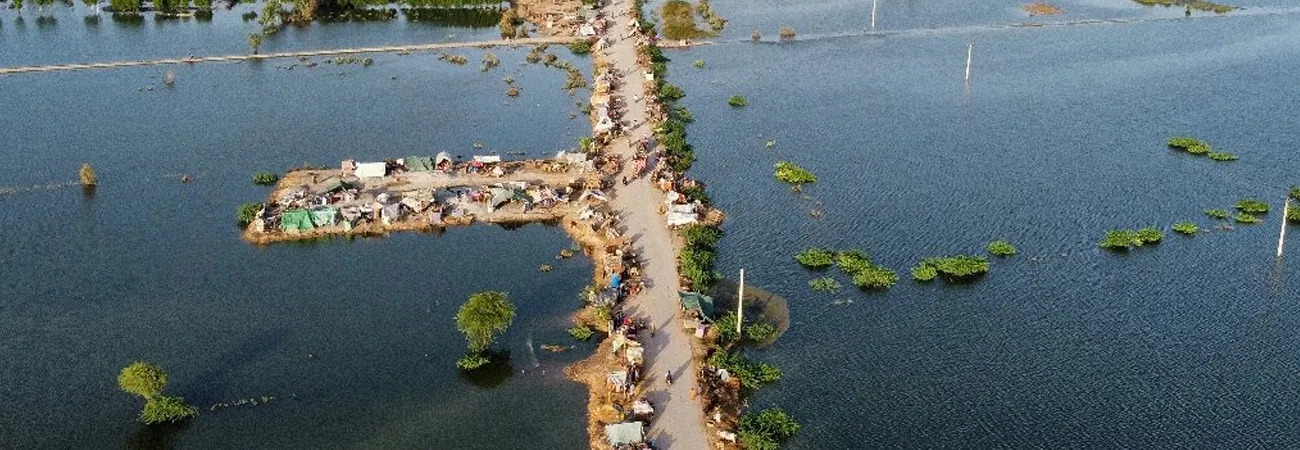i ECONOMY
The Ministry of Planning, Development and Special Initiatives has been pulling out all stops to apply the Resilient Recovery, Reconstruction and Rehabilitation Framework (4RF) in the areas affected by the 2022 flood. The 4RF is a strategy that was launched after the devastating flood to help the people and the environment recover from the disaster. Secretary of Planning Zafar Ali Shah said prior to the floods, the economy was walking a tight rope. The floods disproportionately affected the poorest households in the poorest districts, as well as segments of the country where human development results were already low before the floods. “The government is keenly working on strategic recovery objectives and strengthening state governance and capacity to restore the lives and livelihoods of affected people, particularly in the most vulnerable areas, including the affected areas as well,” he said.
Shah said multilateral and bilateral agreements have given Pakistan a new landing. The World Bank's Board of Executive Directors approved a $200 million financing package as part of the program agreed with the Government of Pakistan to respond to the devastating floods and develop a climate-resilient Pakistan. “This funding would be utilized to enhance state capacities for delivering essential services and developing climate-resilient rural infrastructure in Khyber Pakhtunkhwa, including investments for post-flood rehabilitation and reconstruction.“We are taking vigorous steps to develop the poorest districts with the main objective being the promotion of inclusive growth and equitable development through targeted investment in infrastructure and human capital development. A recovery and reconstruction cell would be created in the Ministry of Planning in addition to future disaster planning,” Shah stated.
“It is imperative that we invest in building human capital and resilience, particularly in rural Sindh and Balochistan where much of the devastation occurred,” he said. Dr Ghulam Rasool, former DG of Pakistan Metrological Department (PMD), said, “The country has observed changing weather patterns, including variations in precipitation and temperatures, increased frequency and severity of tropical storms and coastal rains, glacial melt, glacial lake outburst flooding, sea level rise, loss of biodiversity, and droughts.”
“Successful implementation of the 4RF framework requires collaboration among government agencies, non-governmental organizations, international partners, and local communities. It is essential to engage the stakeholders at all levels, from immediate relief to long-term resilience-building efforts,” he opined.According to WealthPK research, 4RF is the government’s strategic policy and prioritization document which will guide the recovery, rehabilitation, and reconstruction of the country. The strategy follows a globally recognized approach and methodology for recovery planning and implementation. It has three phases that span different time frames: short-term (up to one year), medium-term (up to three years), and long-term (up to five to seven years).
Credit: Independent News Pakistan (INP)









